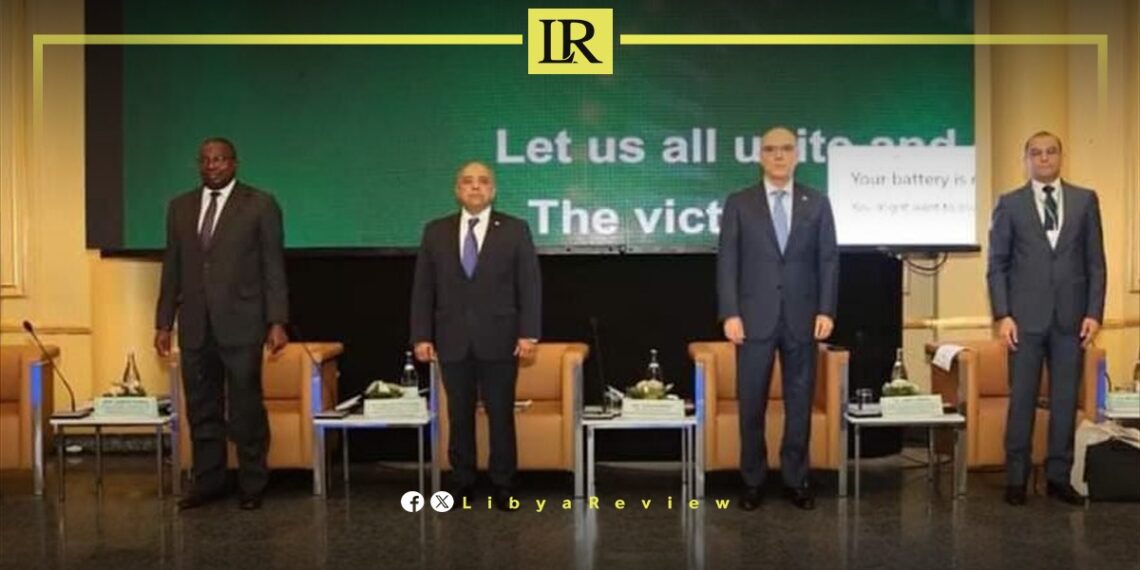The Libyan Embassy in Tunis has announced its participation in the Pan-African Conference on Illicit Financial Flows (IFFs) and Taxation. This event is organised by the African Union Commission’s Department of Economic Development, Trade, Tourism, Industry and Minerals (ETTIM) in collaboration with the Tunisian government. The conference runs from 26 to 28 June 2024.
The conference, which was opened by Tunisian Minister of Foreign Affairs, Migration, and Tunisians Abroad, Nabil Ammar, focuses on addressing the challenges posed by illicit financial flows across Africa. These flows are a significant barrier to achieving the goals outlined in Africa’s Agenda 2063, particularly Aspiration 1, which aims for prosperity through inclusive growth and sustainable development.
On behalf of AU Commission Chairperson Moussa Faki Mahamat, AU Commissioner for Economic Development, Trade, Tourism, Industry, and Minerals, Ambassador Albert M. Muchanga, emphasised the necessity of moving beyond debates to implement concrete measures. He highlighted the severe challenges Africa faces, including unsustainable debt, declining official development flows, low foreign direct investment due to perceived risks, disrupted global supply chains, and emerging geopolitical issues.
Ambassador Muchanga stressed Africa’s low tax collection as a percentage of GDP compared to global standards and briefed attendees on actions taken by the AU, such as partnerships with the African Tax Administration Forum (ATAF), the Tax Justice Network Africa (TJNA), and UNCTAD on the Automated System for Customs Data (ASYCUDA). He also mentioned the African Alliance on Domestic Resource Mobilization, which works on aligning tax policies, expanding tax bases, and strengthening tax administration.
Ambassador Muchanga underscored the importance of increasing tax collection to address current economic challenges and stressed the need for collaborative efforts to combat illicit financial flows effectively.
Minister Nabil Ammar highlighted the international community’s crucial role in tackling illicit financial flows and supporting Africa’s development. He stressed the need for genuine political commitment from all nations to fight these illegal activities. Tunisia, he noted, is actively working on national legislation, strengthening asset recovery mechanisms, and collaborating with regional and international organisations to trace, freeze, and confiscate looted assets.
Minister Ammar called for a reform of the international financial system to reduce the liquidity of illicit funds. He pointed out that criminal financial activities undermine African countries’ ability to mobilise resources for sustainable development and weaken their institutions through corruption and bribery.


